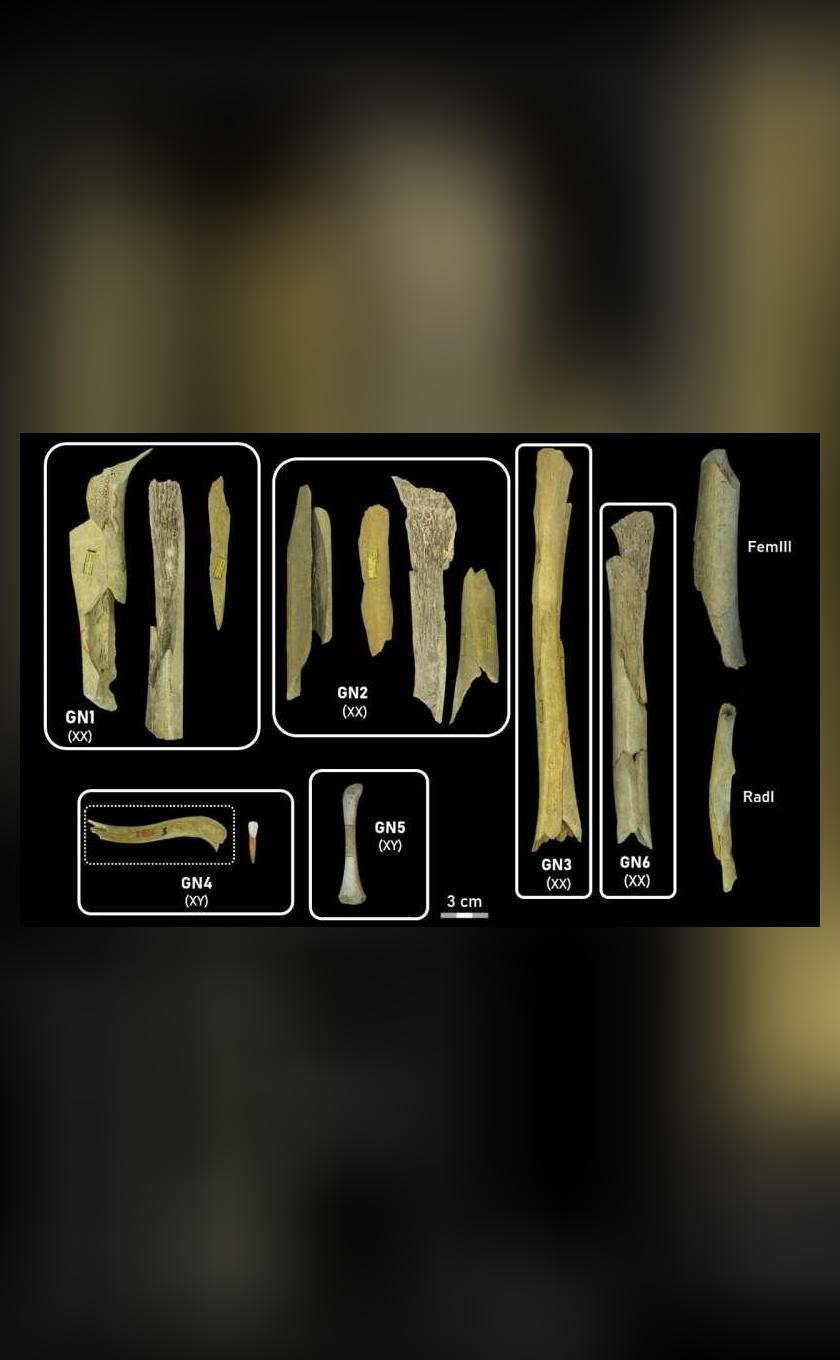
Neanderthals ate outsider women & children 45,000 years ago: Study
The discovery of human remains in Belgium’s Goyet cave system has shed new light on the behavior of Neanderthals, our ancient human relatives. A recent study has revealed that Neanderthals engaged in cannibalism, specifically targeting women and children from other communities, around 45,000 years ago. This finding has significant implications for our understanding of Neanderthal behavior, social structure, and the dynamics of human evolution.
The study, which analyzed 101 bone fragments found in the Goyet cave system, identified butchery marks similar to those found on animal bones. These marks suggest that the Neanderthals had processed the human remains for food, likely as a result of territorial conflict and competition for resources. The fact that the victims were primarily women and children from other communities is a striking aspect of this discovery, and it raises important questions about the social and cultural context of Neanderthal cannibalism.
To understand the significance of this finding, it’s essential to consider the broader context of Neanderthal evolution and behavior. Neanderthals, also known as Homo neanderthalensis, were a distinct species of human that lived in Europe and Asia from around 400,000 to 40,000 years ago. They were characterized by their stocky build, prominent forehead, and robust bones. Neanderthals were skilled hunters and gatherers, and their diet consisted of a variety of plants and animals.
However, around 45,000 years ago, Neanderthal populations were shrinking, and Homo sapiens (modern humans) had begun to occupy nearby regions. This led to increased competition for resources, which may have contributed to the territorial conflict and cannibalism observed in the Goyet cave system. The fact that Neanderthals targeted women and children from other communities suggests that they may have been seeking to eliminate potential competitors and expand their territory.
The discovery of cannibalism among Neanderthals is not entirely surprising, as there is evidence of cannibalism in other human societies throughout history. However, the fact that Neanderthals specifically targeted women and children from other communities is a unique and fascinating aspect of this study. It suggests that Neanderthals may have had a complex social structure, with different groups competing for resources and territory.
The study’s findings also have implications for our understanding of human evolution and the development of social behavior. The fact that Neanderthals engaged in cannibalism, particularly against outsiders, suggests that they may have had a more primitive and competitive social structure than previously thought. This challenges the traditional view of Neanderthals as cooperative and altruistic, and instead suggests that they may have been more similar to other animal species in their behavior.
The researchers who conducted the study used a combination of archaeological and anthropological methods to analyze the human remains found in the Goyet cave system. They identified the butchery marks on the bone fragments and compared them to those found on animal bones, which suggested that the Neanderthals had processed the human remains for food. The study’s findings are significant not only because they provide evidence of cannibalism among Neanderthals but also because they offer insights into the social and cultural context of this behavior.
In conclusion, the discovery of Neanderthal cannibalism in the Goyet cave system is a significant finding that sheds new light on the behavior and social structure of our ancient human relatives. The fact that Neanderthals targeted women and children from other communities suggests that they may have had a complex and competitive social structure, and that cannibalism may have played a role in their territorial conflicts. As we continue to learn more about Neanderthal behavior and evolution, we may uncover even more surprising and fascinating insights into the history of our species.
News source: https://phys.org/news/2025-11-neanderthal-women-children-victims-cannibalism.html





